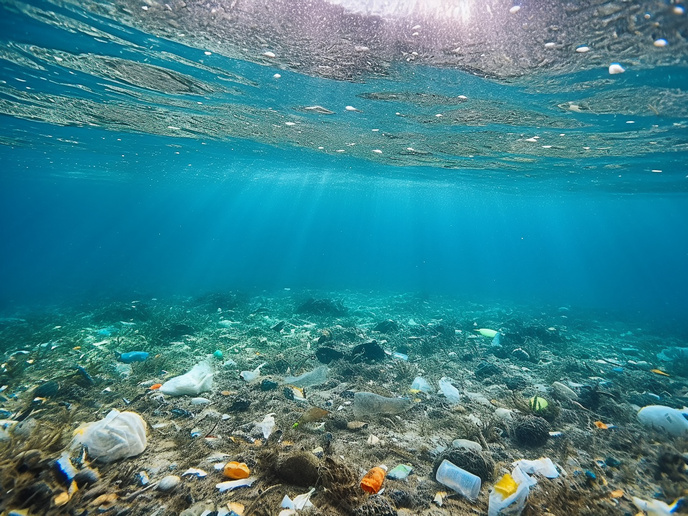The role of the MAELSTROM project in addressing the Marine Litter Legacy
Plastic litter enters our seas primarily from rivers and ends up in marine ecosystems, where it is widely known to have harmful effects on both wildlife and human health. Sustainable recovery of plastic from oceans is complex and expensive. Long-term remediation requires the concerted, multidisciplinary research efforts of the 14-strong team of MAELSTROM partners. Centres of excellence in marine life, AI and robotics, recycling companies and plastics research experts are all key players in the consortium. So are a marketing consultancy company to help sell the recycled products and all media outlets for spreading the latest word on social awareness about the marine litter issue. MAELSTROM has identified Europe’s so-called marine litter accumulation hotspots as the Ave River, Portugal, and the Venice coastal area, Italy. Characteristics of the waste, whether it sinks, and the winds and currents all determine where it will be deposited – as well as the best possible remediation plan.
Bubbles and robots
A bubble barrier in the Ave River is preventing the plastic from entering the ocean. Developed by Dutch partner The Great Bubble Barrier®, the cunning design allows the passage of fish and traffic while directing the waste with a ‘bubble curtain’ to a catchment system at the riverbank. For the Venice Lagoon, a robotic seabed cleaning platform has been developed by partners Tecnalia Research and Innovation, LIRMM and Servizi Tecnici. The AI system identifies the waste and picks each item off to minimise impact on ecosystems. It has a sucker for small litter pieces and a gripper for larger material.
And after removal...
An AI-driven sorting robot separates the litter, which is then subjected to the most advanced recycling processes. Now able to re-enter the industrial supply chain, the regenerated materials include chemical precursors and polymers. A fine example of the circular economy, shredded fishing nets were transformed into panels and laminates. So far, both technologies have collected a total of 7 tonnes of marine litter. Some of the material collected in Venice was subjected to low-temperature pyrolysis to produce second-generation marine fuel. This is yet another example of the circular nature of the system as the fuel powers the project’s marine litter removal technologies. From collection to integration into other recycled products, the MAELSTROM Traceability App tracks its progress and provides a certificate of ‘MarineLitterOrigin’. To determine the efficiency of removal technologies and estimate the long-term effects on ecosystems, MAELSTROM is performing dedicated monitoring surveys of the sites. Life-cycle assessment based on the international ISO standards 14040 and 14044 is also ongoing to evaluate the environmental impacts of the technologies.
Social awareness
Social awareness has to be the key issue behind stemming the tide of the marine litter problem. Advertised by social media channels, MAELSTROM actively encourages citizens' ocean literacy and engages them in beach and canal clean-ups. The project participated in the ‘World’s Biggest Butt Pick Up’ when challenged with collecting 1 million cigarette butts and adheres to the #EUBeachCleanUp campaign and to the EU Mission Restore Our Oceans and Waters. All the MAELSTROM technologies developed so far will reach TRL 6. Moreover, collection of marine litter is efficient and has minimal impact on the environment. The project clock stops ticking at the end of December 2024, and MAELSTROM has already taken the first real step towards a zero-plastic waste policy.
Keywords
MAELSTROM, plastic, marine litter, ocean, AI, robotic, recycle



